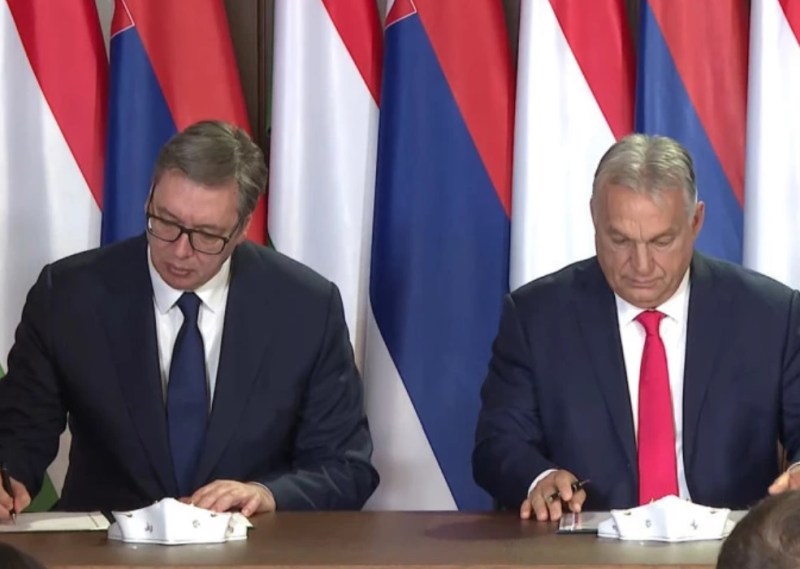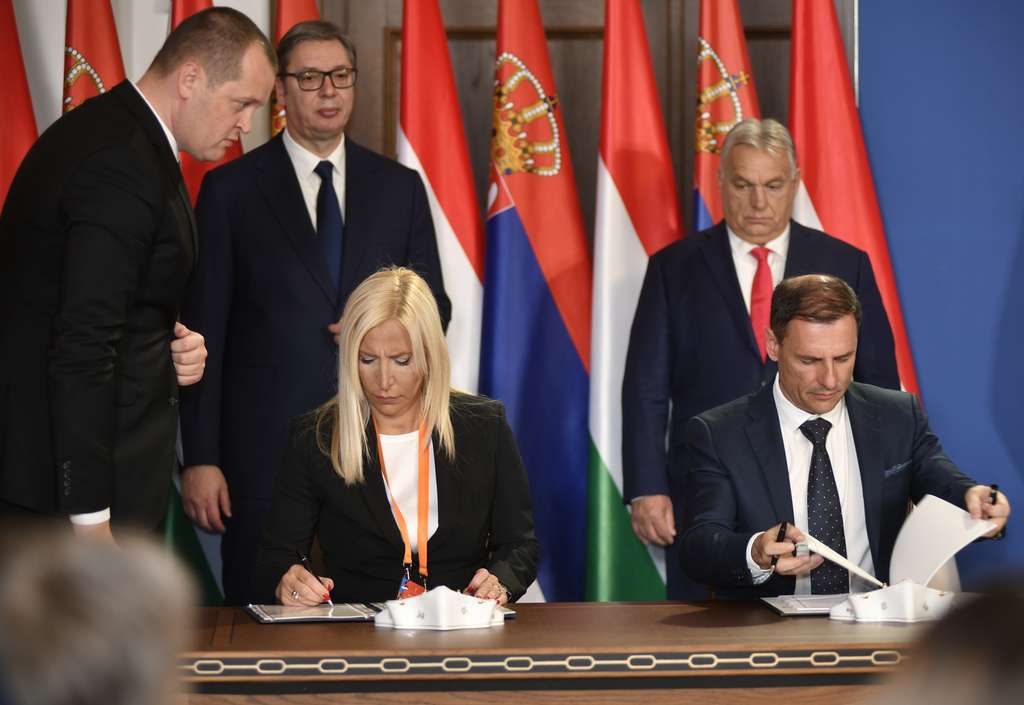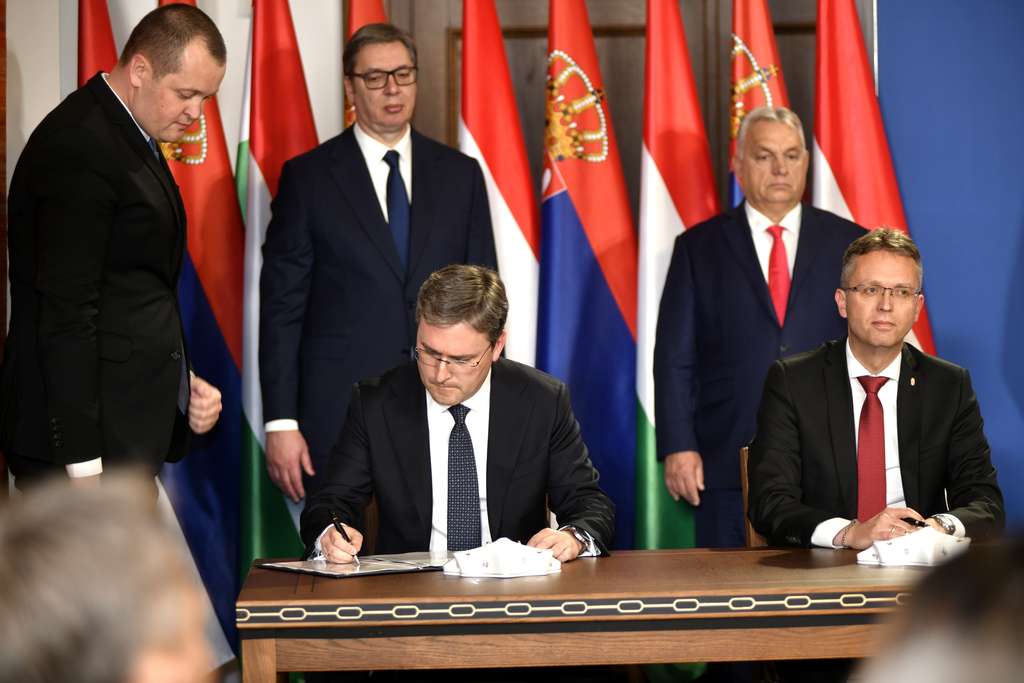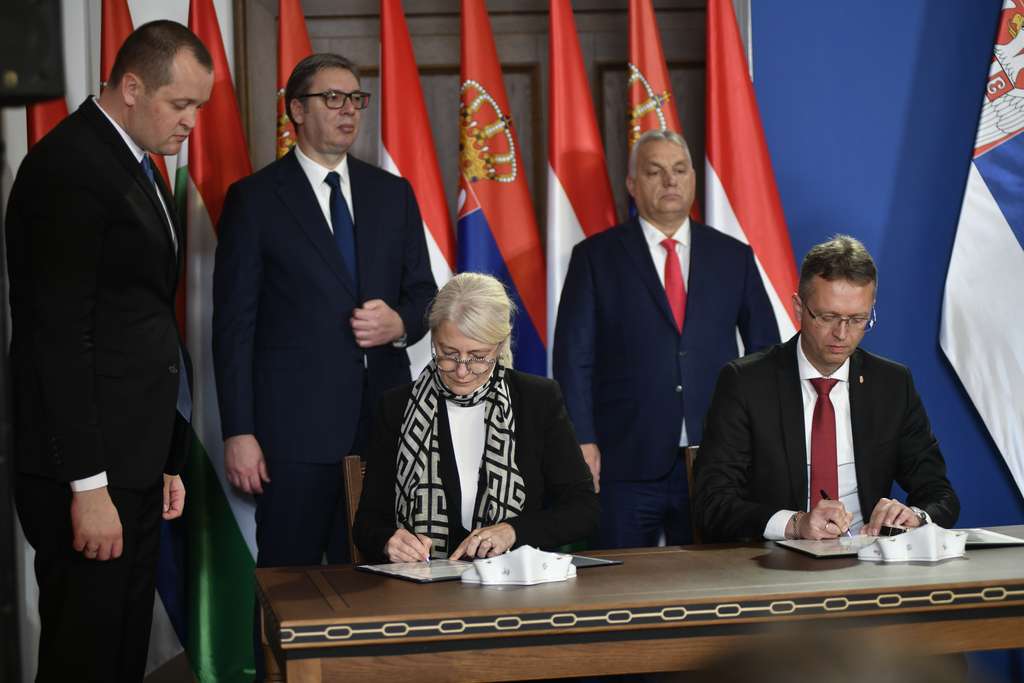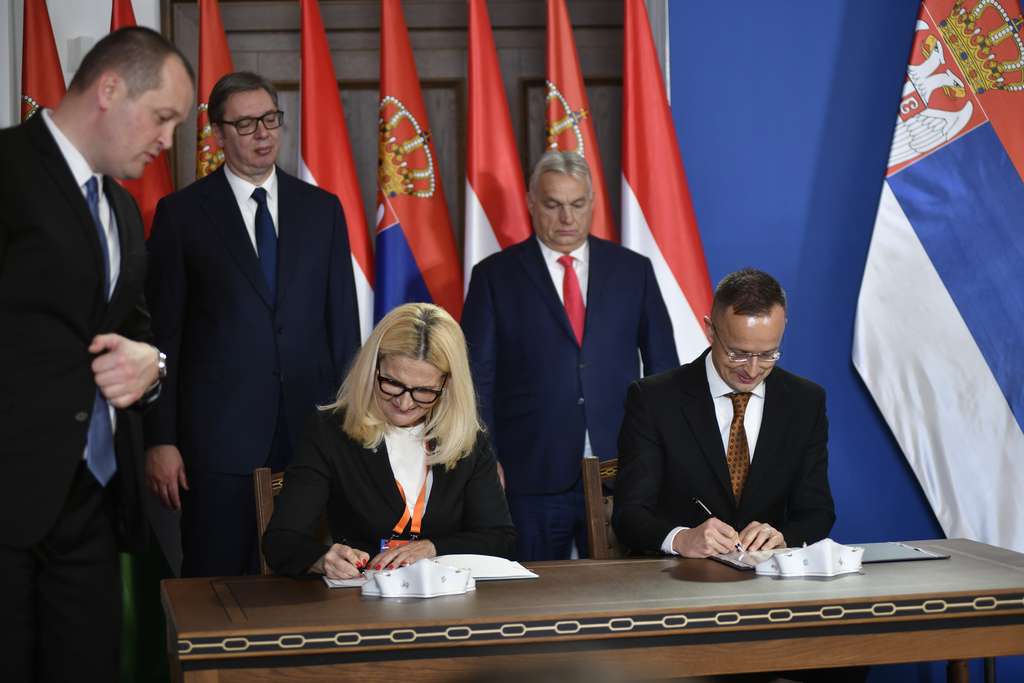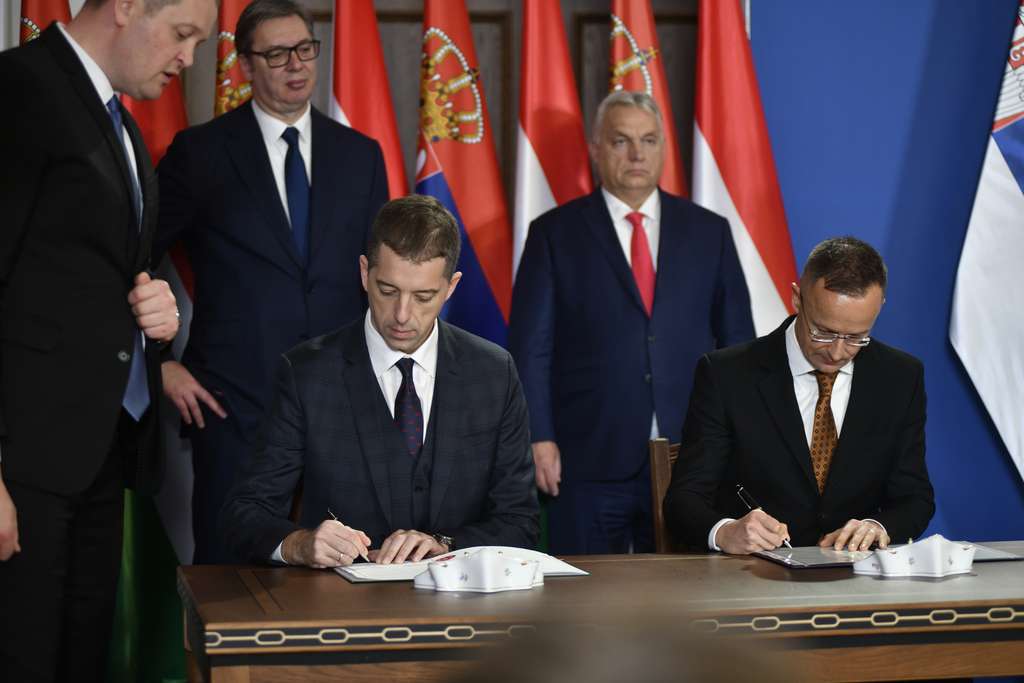President of the Republic of Serbia Aleksandar Vučić and Prime Minister of Hungary Viktor Orbán today signed a Joint Political Declaration between the two countries in Budapest, alongside six additional agreements on cooperation signed by the two countries’ delegations.
- Serbia
Get to know Serbia
- Citizens
Culture and science
Health services
Pension and disability insurance
- Business
Employment
Economy
- Media
- Government
- Contact
Keep in touch
Keepin touch
Whether you have a question, comment, suggestion or any problem in the purview of the government, send us your message and we will try to respond as soon as possible. If your problem is not in our purview, we will forward your message to the relevant institution.
Serbia, Hungary sign Joint Political Declaration, several agreements
Following a session of the Serbia-Hungary Strategic Cooperation Council, the delegations signed agreements in the areas of justice, culture, science, European integration and diplomacy.
Minister of Justice Maja Popović and Minister of Justice of Hungary Bence Tuzson signed the Agreement between Serbia and Hungary on Legal Assistance in Civil Matters.
Minister of Culture Nikola Selaković and Hungarian Minister of Culture and Innovation Balázs Hankó signed a Cooperation Programme in the field of culture between the two ministries for the period 2024–2027.
The Memorandum of Understanding between the Ministry of Science, Technological Development and Innovation of Serbia and the Ministry of Culture and Innovation of Hungary was signed by Serbian Minister Jelena Begović and Hungarian Minister Balázs Hankó.
Minister of European Integration Tanja Miščević and Minister of Foreign Affairs and Trade of Hungary Péter Szijjártó signed an Extension of the Work Plan for Hungarian Experts in the Field of European Integration.
Minister of Foreign Affairs Marko Đurić and Szijjártó signed the Memorandum of Understanding on cooperation between their ministries, as well as the Memorandum of Understanding on development cooperation between the two ministries.
At a joint news conference with Prime Minister Orbán following the session of the Serbia-Hungary Strategic ooperation Council and the signing of the documents, Vučić emphasised that the political and economic ties between the two countries are becoming deeper, which is confirmed by a large number of bilateral agreements signed.
He conveyed that he and Orbán discussed the two countries’ connectivity in the field of energy, announcing that a study for an oil pipeline from Algyő to Pančevo will soon be completed, after which construction will begin.
Serbia will expand its gas storage capacities in Hungary, in facilities provided by the Hungarian government, the President highlighted.
He also recalled that the two countries are jointly building the Pannonian Corridor, which will double the capacity for power transmission between Serbia and Hungary.
Orbán assessed that Europe is facing problems with growth and dynamics, and that new EU members can give it a new impetus, with Serbia being the best candidate.
Orbán announced that the high-speed rail line between Budapest and Belgrade will be completed by the beginning of 2026, and that it has been agreed to transform the Röszke-Horgoš border crossing into the most modern border crossing in Europe.
Photos by: Tanjug/ Serbian Government
-
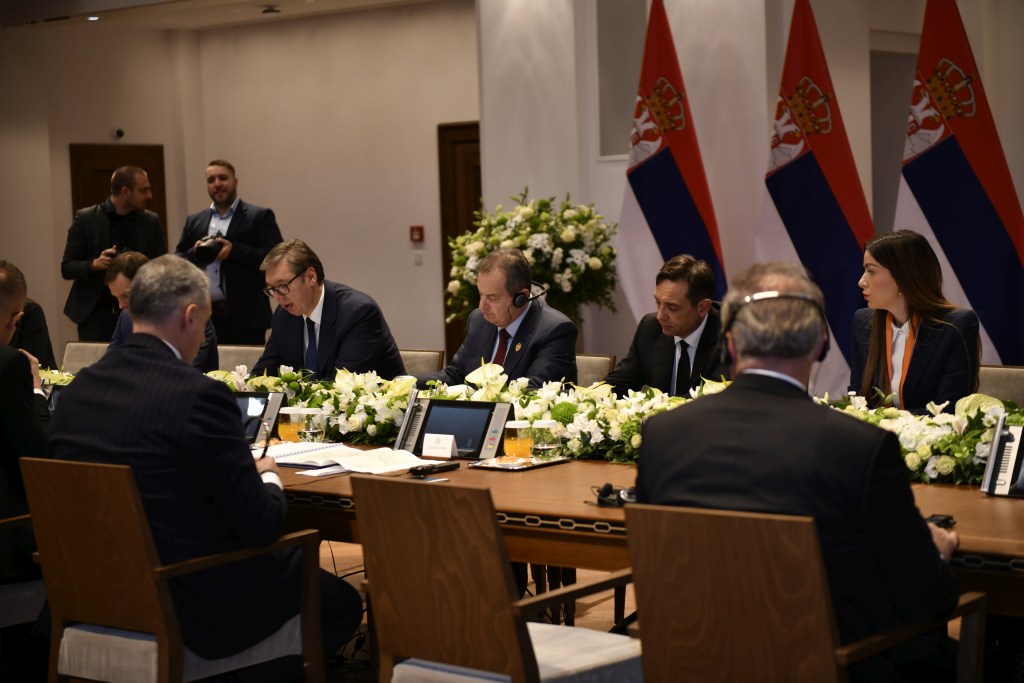 Belgrade/Budapest, 14 November 2024
Belgrade/Budapest, 14 November 2024Serbia-Hungary ties stronger than ever
-
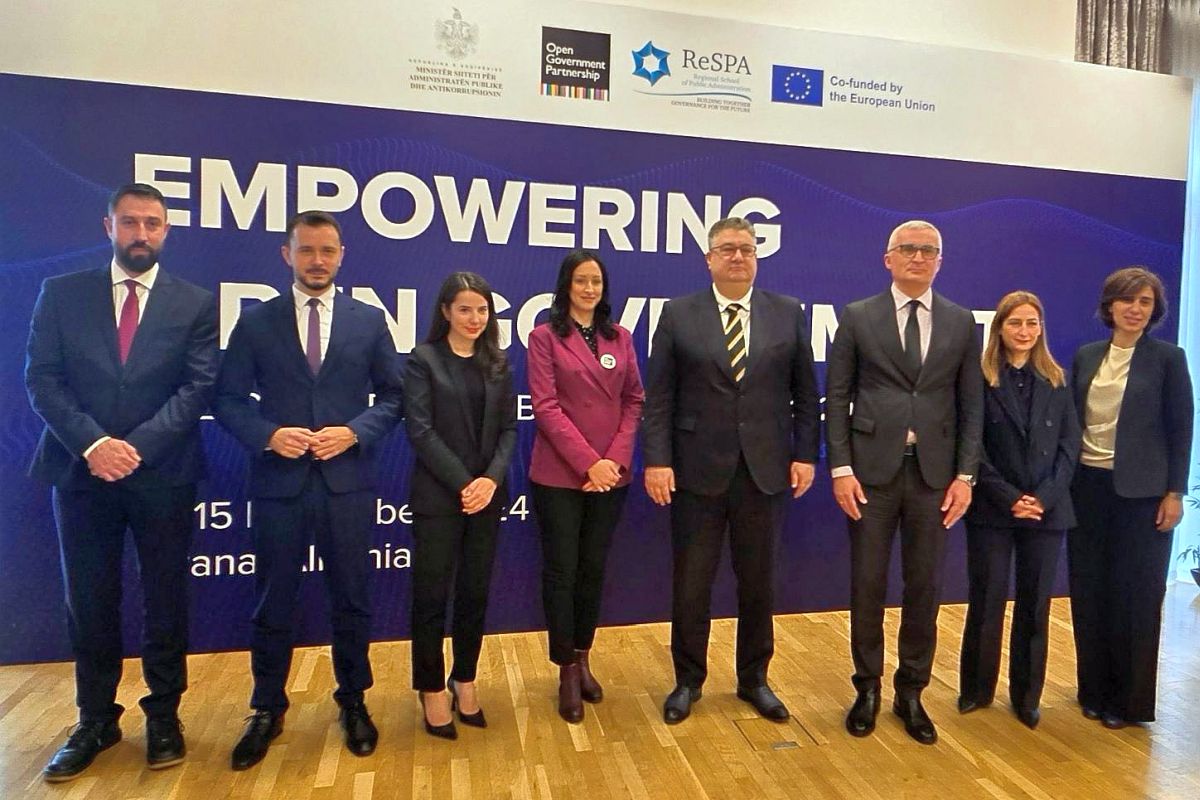 Belgrade/Tirana, 14 November 2024
Belgrade/Tirana, 14 November 2024Improved regulatory framework for building modern public administration
-
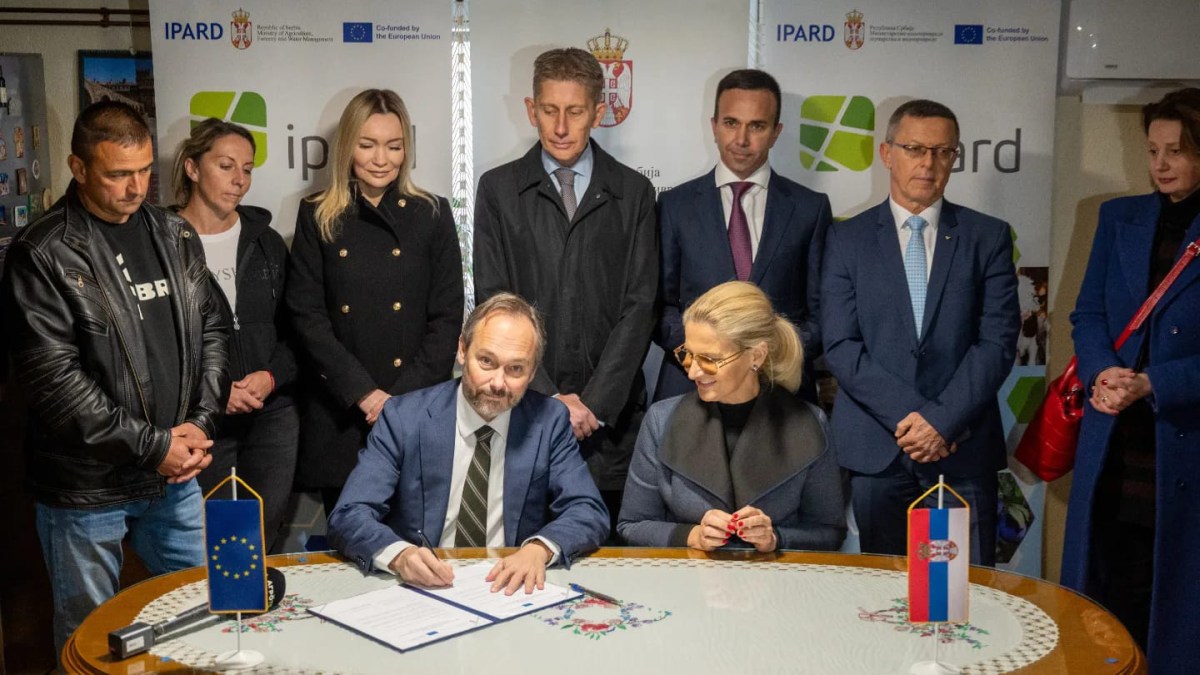 Mionica, 12 November 2024
Mionica, 12 November 2024IPARD III Financing Agreement between Serbian government, EU exchanged
-
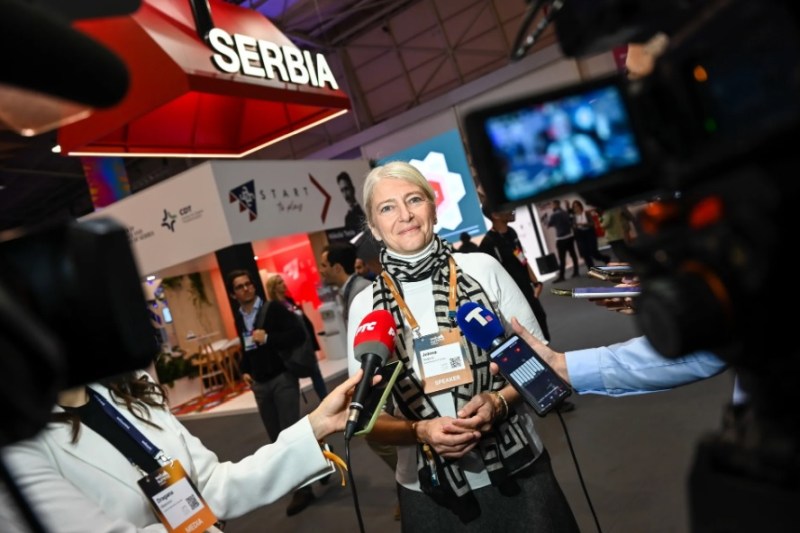 Belgrade/Lisbon, 12 November 2024
Belgrade/Lisbon, 12 November 2024Web Summit in Lisbon a major opportunity for domestic start-ups
-
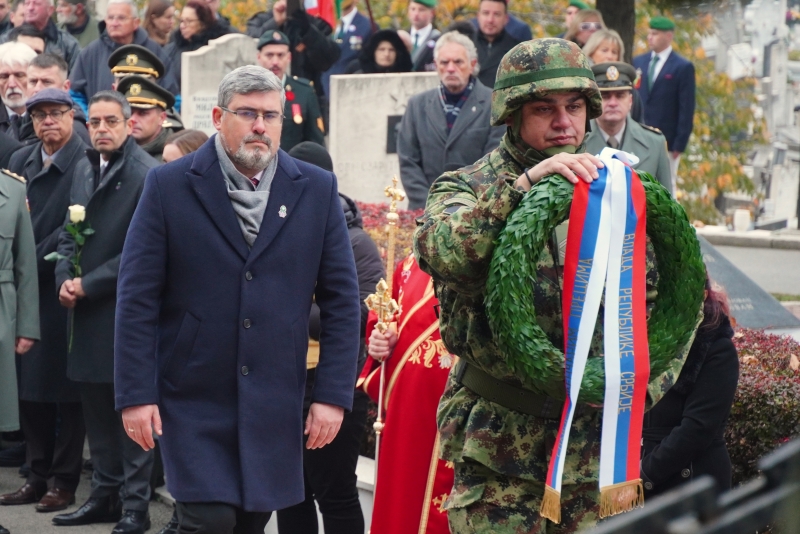 Belgrade, 11 November 2024
Belgrade, 11 November 2024State ceremony to commemorate Armistice Day in First World War held
-
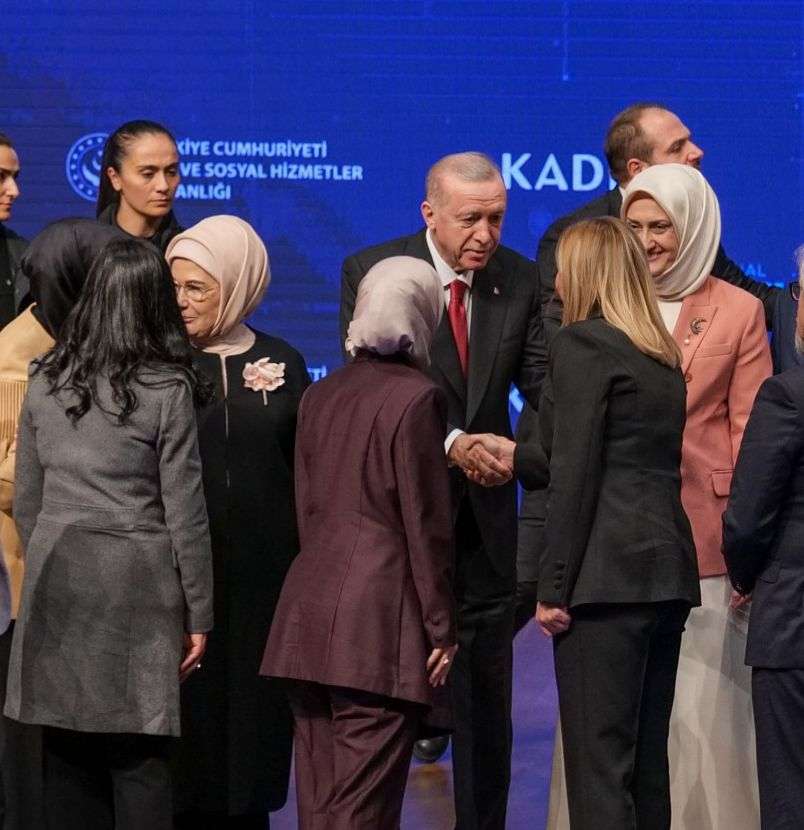 Belgrade/Istanbul, 9 November 2024
Belgrade/Istanbul, 9 November 2024Serbia committed to empowering women in digital era
-
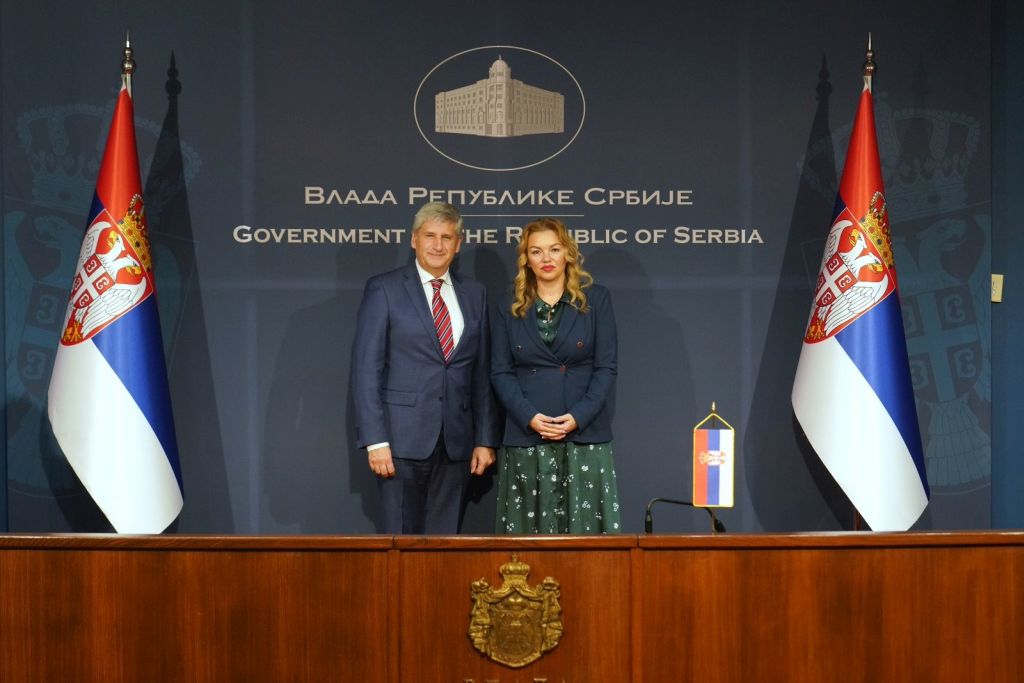 Belgrade, 8 November 2024
Belgrade, 8 November 2024Cooperation with ICMPD on improvement of programme of voluntary return of migrants
-
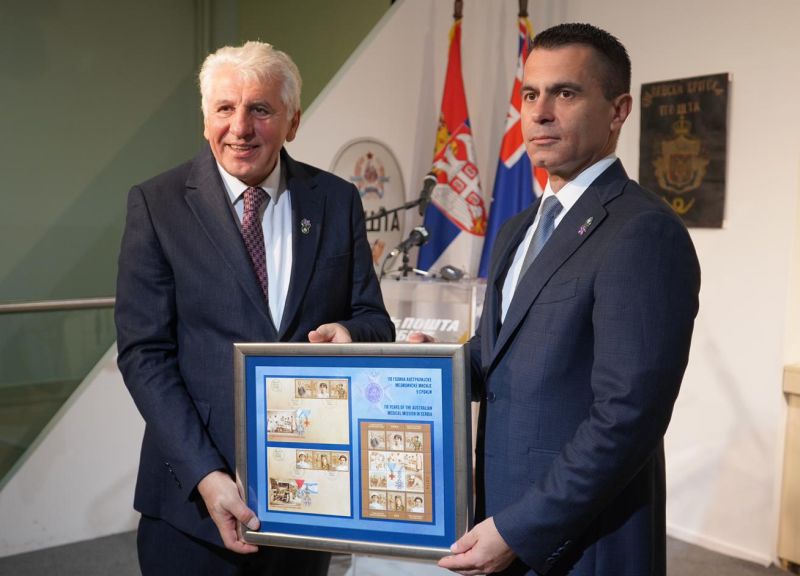 Belgrade, 8 November 2024
Belgrade, 8 November 2024Postage stamps commemorating 110th anniversary of Australian medical mission in Serbia
-
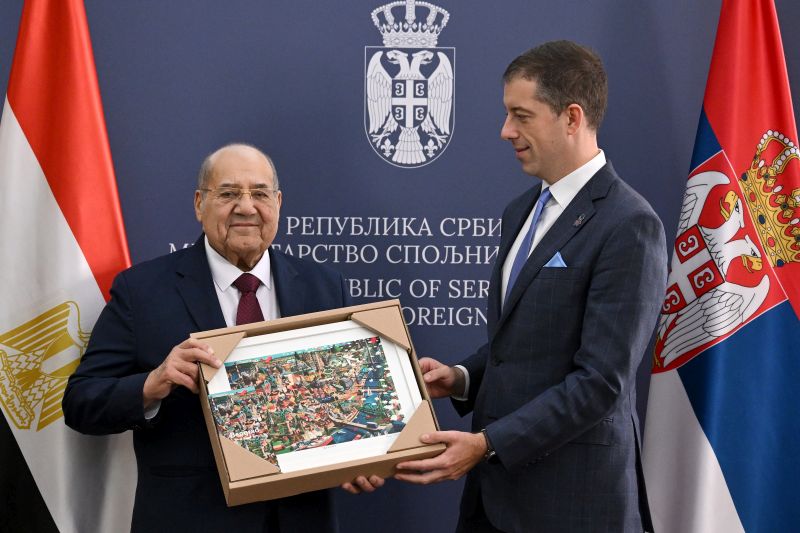 Belgrade, 8 November 2024
Belgrade, 8 November 2024Serbia, Egypt cherish historical friendship
-
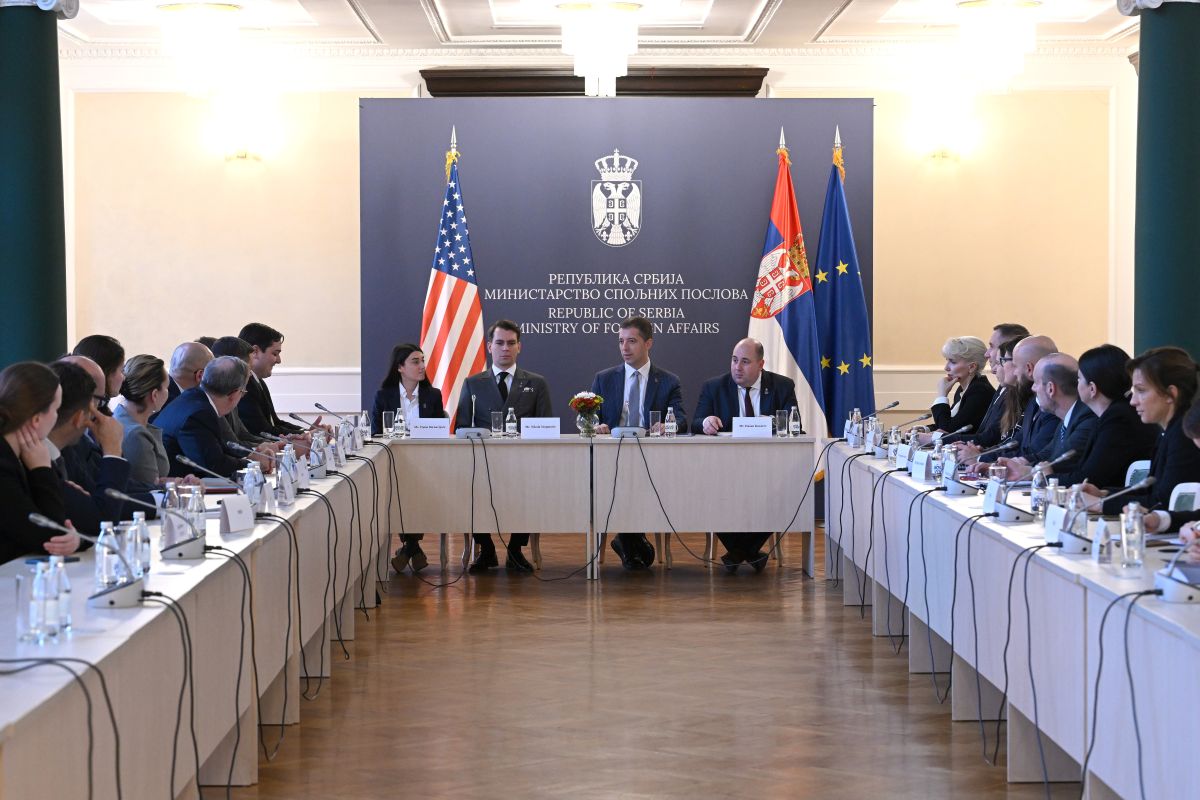 Belgrade, 7 November 2024
Belgrade, 7 November 2024Serbia committed to further improving relations with USA







